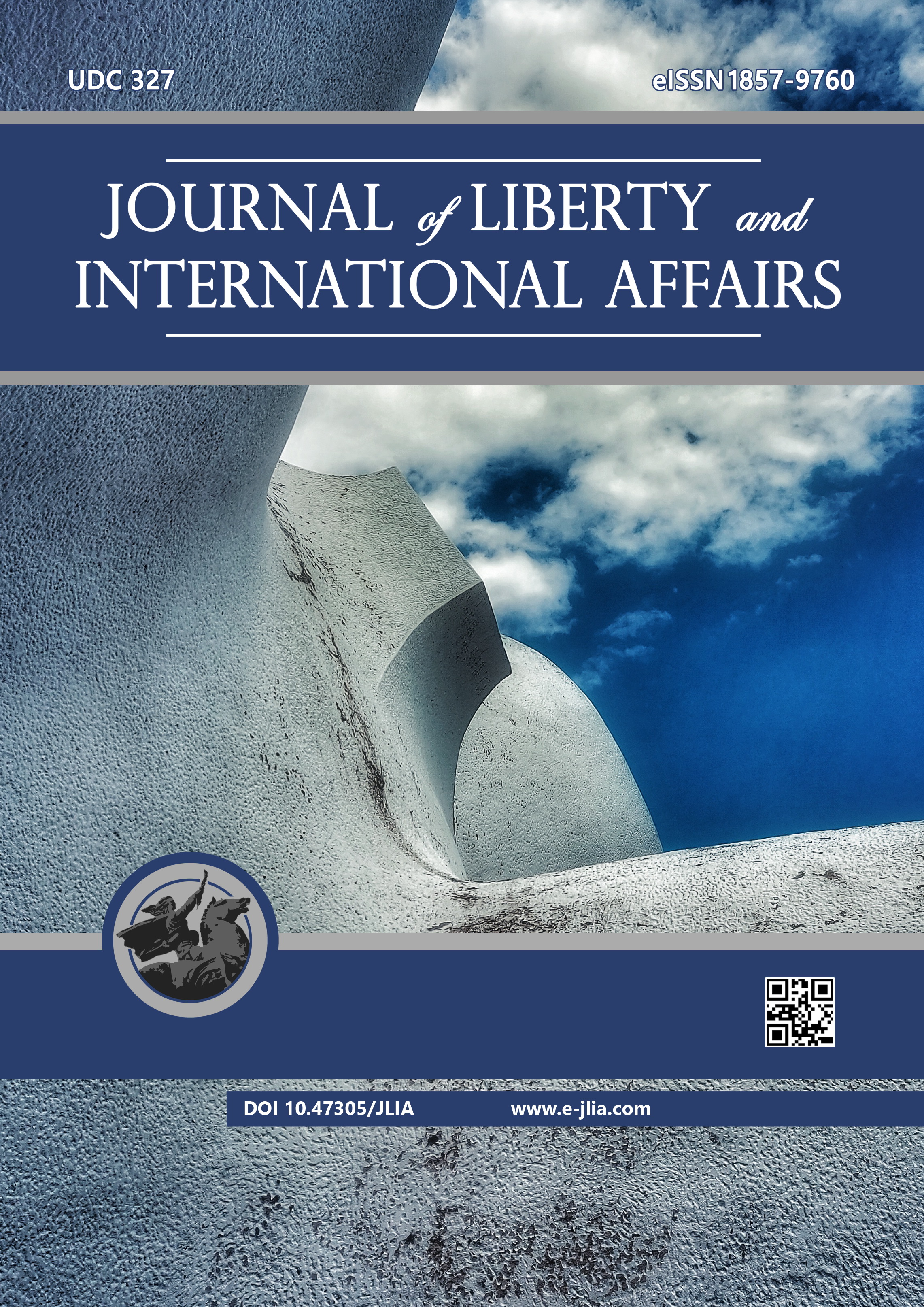INTERROGATING ERDOGAN’S NEO-OTTOMAN GEOPOLITICAL IMAGINATION
INTERROGATING ERDOGAN’S NEO-OTTOMAN GEOPOLITICAL IMAGINATION
Author(s): Jajati K. Pattnaik, Chandan K. PandaSubject(s): Politics / Political Sciences, Politics, Political Theory, Political Sciences, Civil Society, Governance, Public Administration, Public Law, Government/Political systems, International relations/trade, Security and defense, Military policy, Electoral systems, Welfare systems, Political behavior, Political economy, Political psychology, Politics and law, Politics and communication, Politics and religion, Politics and society, History and theory of political science, Methodology and research technology, Comparative politics, Inter-Ethnic Relations, Geopolitics, Politics of History/Memory, Politics and Identity, Corruption - Transparency - Anti-Corruption, Peace and Conflict Studies, Asylum, Refugees, Migration as Policy-fields
Published by: Institute for Research and European Studies - Bitola
Keywords: Neo-Ottomanism; Complex Geopolitics; Recep Tayyip Erdogan; Islam; Hegemony
Summary/Abstract: This paper examines the possible emergence of the neo-Ottoman geopolitical order with the Republic of Turkey at its helm under the leadership of President Recep Tayyip Erdogan. The blueprint for this ambitious order is taken from its Ottoman antiquity. Neo-Ottomanism attempts to secure continuity with its Ottoman past by foregrounding Islam as the core theo-cultural framework to achieve the political end of constituting Islamic nations to come under one particular order. To achieve this desired end, Erdogan intensifies his endeavor and employs his tact to forge alliances with Islamic nations and promises them solidarity and mutual prosperity keeping his leadership role intact. To pursue this ambition, he expressed his belligerence against the neighboring nations such as Armenia, Greece, Cyprus, Georgia, Bulgaria, etc., which were once the constituents of the Ottoman empire and preferred interventionist policy to diplomatic cooperation. The symptoms of neo-Ottoman pre-eminence are evident in the nautical territories in the Aegean Sea, the Black Sea, the Sea of Marmara and the Mediterranean Sea. The study employs methods of analysis and scrutiny of the existing literature in the field and the related areas to achieve the objective of what constitutes Erdogan’s neo-Ottoman geopolitical imagination and to conclude as to what are the geopolitical symptoms that validate the possible emergence of the neo-Ottoman political process, and limitations that underpin the process.
Journal: Journal of Liberty and International Affairs
- Issue Year: 8/2022
- Issue No: 3
- Page Range: 338-355
- Page Count: 18
- Language: English

